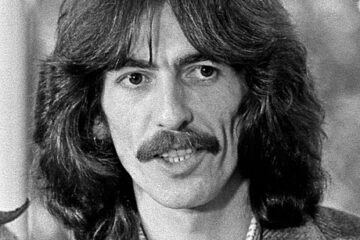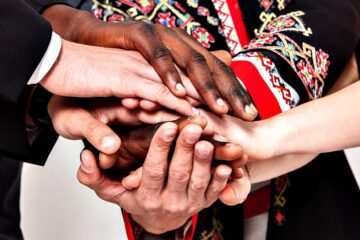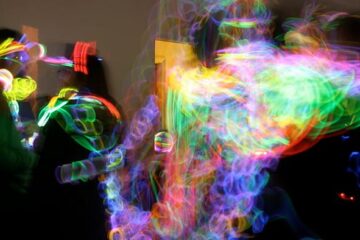The funerals are beginning. We are seeing gut-churning images of parents, siblings, playmates, a whole community in grief.
We’ve gasped and cried our way through such footage and photographs before, of course. And there is no saying we will not do so again, because hyper-individualism, bullying, unhealthy isolation, madness and spiritual darkness have permeated the fabric of our society to a degree that seems unfathomable to us, even as we struggle to recognize all of it, all of the bad ingredients that go into the making of a mass murderer and the ease in which such a broken spirit can find lying, false ways to feel powerful.
And don’t for a moment forget the impact of chaos magick on our times. It is real, and its energies are ripening. But that’s a post for another time.
Right now, on this day which begins a month-long appreciation of the Sacred Heart of Jesus, I’m thinking about the surviving children of Uvalde, and their future health, particularly of their hearts.
We have already seen one heart break, truly break, as Joseph Garcia, the grief-stricken husband of slain teacher Irma Garcia, died of a heart attack within days of the Uvalde massacre, leaving their four children additionally traumatized and parentless.
Takotsubo syndrome
Physically “broken” hearts are a real (and long-term) consequence of trauma; in 2017 a British Heart Foundation study followed 52 patients over four months, aged between 28 and 87, who suffered with what is officially known as takotsubo syndrome. This report suggested that it is mostly found in women but poor Joe Garcia gives some counterpoint to that. Still there is physical evidence that trauma literally changes the heart.
The little-known condition was first coined in Japan in 1990 and named after the native word for an octopus pot, which has a unique shape that resembles a broken left ventricle.
It is provoked when the heart muscle is suddenly “stunned,” causing the left ventricle to change shape, and is typically prompted by “intense emotional or physical stress.”
It affects the heart’s ability to pump blood and, according to the BHF, there remains no known medical cure. […] Figures show that between three per cent and 17 per cent of sufferers die within five years of diagnosis.
The notion of dying of a broken heart may seem poetic in the West, but in Traditional Chinese Medicine (TCM), it has always been understood that emotional, spiritual or psychological shocks can “break” the heart by adversely affecting the tonality of shen energies — the energies of the heart, which are at the center of the body.
Life-long effects
I bring this up not to advocate for TCM but because after reading the symptoms and developments of takotsubo syndrome and re-familiarizing myself with the shen ideas, it all brought to mind this piece, on how childhood trauma leads to lifelong, chronic illness.
It wasn’t until I was fifty-one-years old that a physician sat me down and asked me the most important question of my life – one that would lead me to better health than I’d had for decades: “Were there any childhood traumas or stressors that might have contributed to the extreme level of inflammation you’re experiencing as an adult?” My physician explained that ongoing adversity in childhood leads to a chronic state of “fight, flight or freeze.” Researchers at Yale had recently shown that when inflammatory stress hormones flood a child’s body and brain, they alter the genes that oversee our stress reactivity, re-setting the stress response to “high” for life. This increases the risk of inflammation, which manifests later in cancer, heart disease, and autoimmune diseases like mine.
As a woman whose childhood was fraught with trauma, the idea that it can so ferociously harm our immune systems as to negatively impact our health in adulthood rings true to me, as does the notion of one’s heart literally becoming “broken” beyond repair. Last year, I finally began to get serious about eating right, exercising, losing weight, and it’s been a very successful endeavor but I wonder whether my guardian angel, or the Holy Spirit might have prompted me into it, because suddenly, as I started doing everything right, heart failure showed up. I lay in a hospital bed last month musing on the irony that had I not been nudged into getting healthier, I might not have survived its manifestation when it showed up. And then I recalled the connection to childhood trauma, and couldn’t help but wonder if my heart is simply tired from carrying the weight — the physical and psychic weight — of a childhood suffering. And I recalled that my mother, whose own childhood was no bed of roses (“hurt people hurt people”) also had heart failure. Perhaps some things that we call “genetic” are simply echoes of hurt passed down, generation-by-generation, like the “sins of the fathers”… and hurt people hurt people.
Praying Outside of Time
But particularly after pondering childhood trauma and the many adult health problems that are being traced to it, I wonder if there might be metaphysical route to addressing some of this physicality. I’ve been thinking about it in terms of my own life and heart, but also as regards the children of Uvalde, whose shocked hearts and nervous systems are going to send reverberations throughout their bodies and minds for decades to come — maybe for the whole of their lives. We know that God is outside of time, and that prayer is too. I wonder if I can pray for God’s active grace and the action of the Holy Spirit to become inserted into all that occurred in that community, in that school, in those families, and in that way, help the stress response to reset away from “high” — away from all the inflammation, the damaging rising of stressors that can only break a body down. Stunt those heart-changing, heart-breaking stressors a little bit.
I do believe all things are possible with faith. I still trust in the promise of John 14:14.
But what prayer shall I use? A rosary? A Litany (or a Novena) to the Sacred Heart to the Sacred Heart of Jesus in this month of June? The Mass — that most perfect and time-transcendent prayer — every day?
Maybe some of these, or all of these. All prayer is good, and efficacious. And we can use it to subvert time, and ask healing on everyone who live with the shocking trauma that breaks hearts and minds and souls, and makes hurt people hurt people.
NOTE: Feature imaged is a detail from my copy of Daniel Mitsui’s Adoration of the Trinity drawing.


